Introduction
- Knowledge management is a part of a project that defines its success and is related directly to human resource management (HRM).
- HRM is a process of allocating the existing human resources and assigning staff specific roles and responsibilities (Obeidat, Masa’deh, & Abdallah 2014).
- Organizational commitment is staff’s loyalty to the company, according to Neyestani et al. ( as cited in Obeidat, Masa’deh, & Abdallah 2014).
- Causal links exist between KM strategies and HR processes.
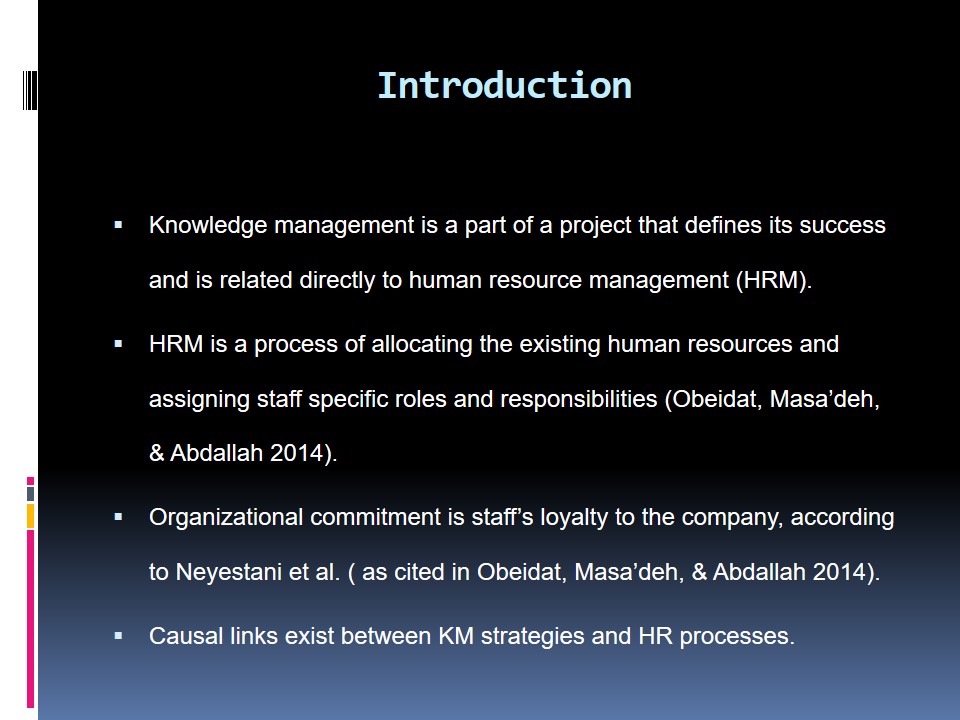
Agenda
- The choice of an HR strategy defines the further organizational behaviour (OB) patterns;
- The OB patterns shape the process of information management in a firm;
- The KM approach used by an organization determines its position in the global market;
- It is essential that links between KM and HRM should be established, which Obeidat, Masa’deh, and Abdallah (2014) address in their article.
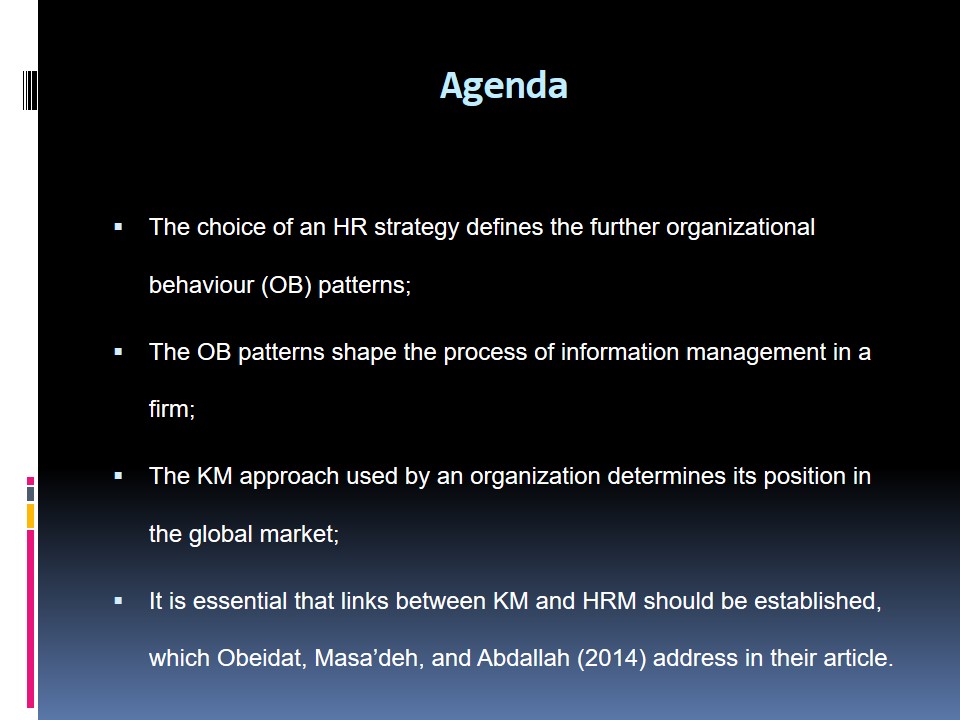
Objectives and Methodology
- Obeidat, Masa’deh, and Abdallah (2014) attempt at establishing a connection between the HRM strategies, the concept of organizational commitment, and the KM process with the help of quantitative research;
- A questionnaire with 54 questions was distributed with the help of random sampling among 220 Jordan consultancy companies;
- The quantitative study is carried out in the workplace setting shows that the constructs ranging from 0.90 to 0.95 affected 50% of variance. Therefore, the study has proven that there is a strong correlation between the variables.
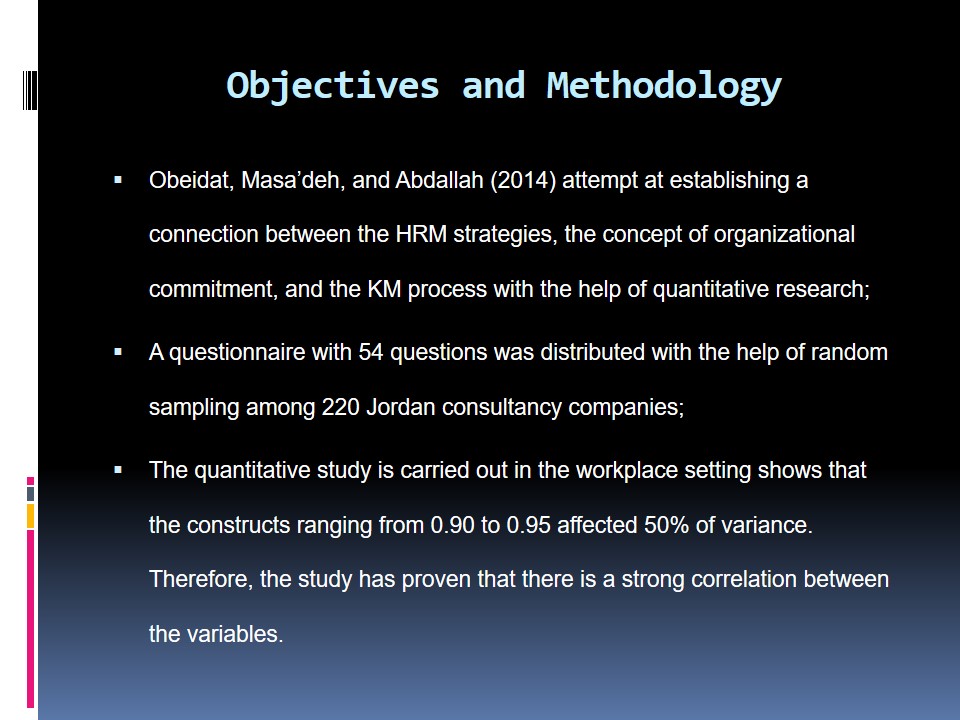
Hypotheses
- Hypothesis A: There is a link between the application of HRM approaches and organizational KM processes.
- Hypothesis B: There is a link between HRM and organizational commitment.
- Hypothesis C: There is a link between organizational commitment and KM-related issues in a company.
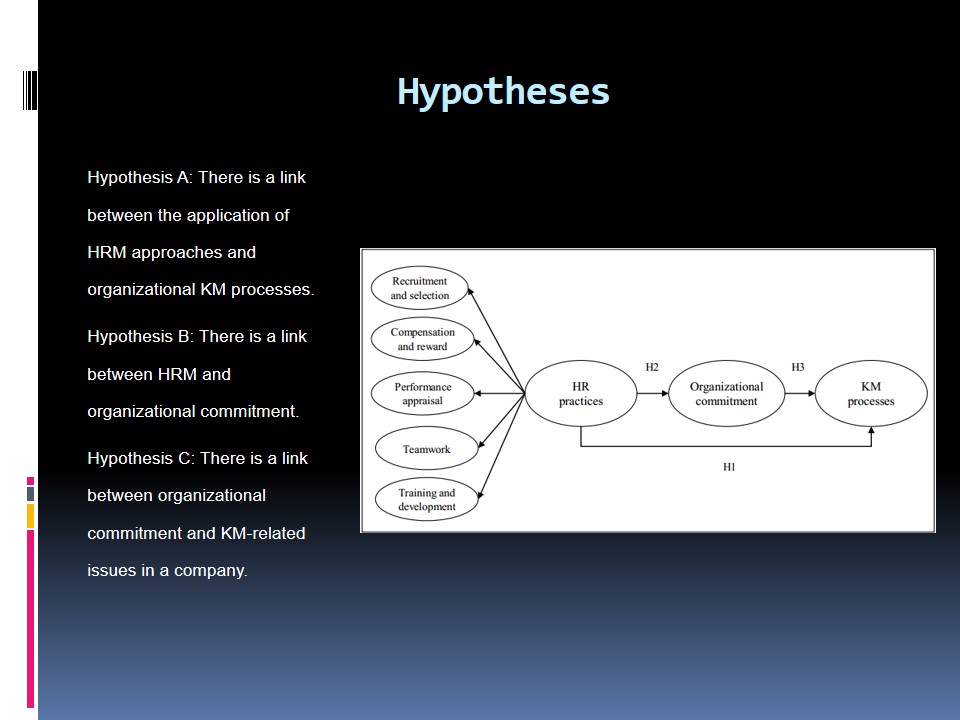
Reward Systems
In order to maintain a solid KM system, the company leader will have to introduce incentives that will encourage the staff to accept the new KM and OB patterns.
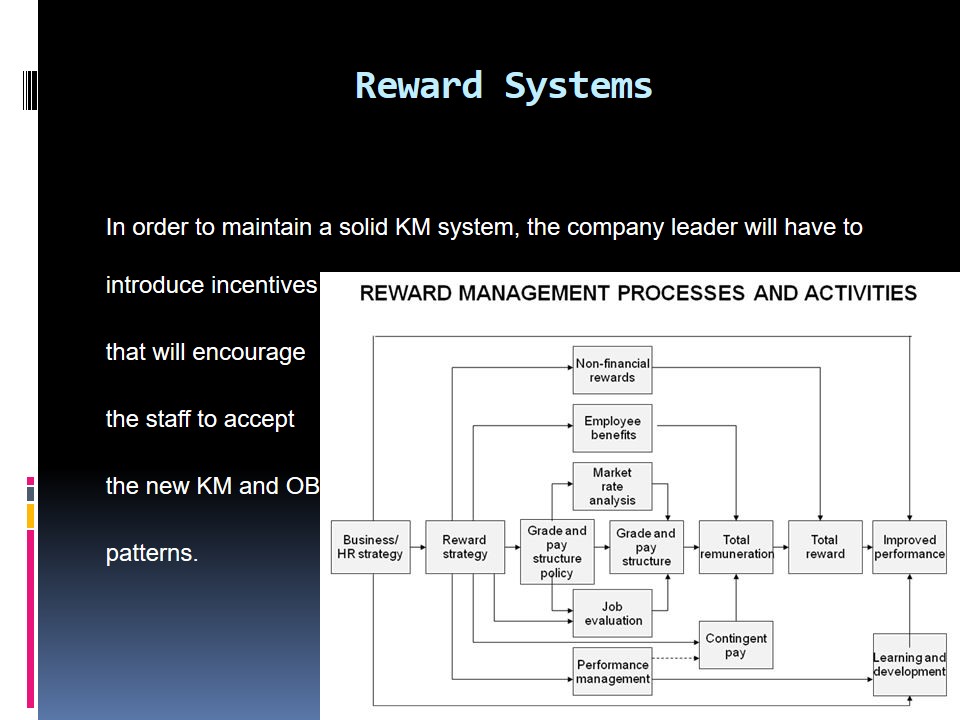
Commitment in an Organization
- Organizational commitment is crucial to the process of integrating the KM system based on knowledge sharing in an organization (Obeidat, Masa’deh, & Abdallah 2014);
- Knowledge management hinges on the relationships between the staff members; therefore, the incorporation of the principles of knowledge sharing will have to be supported by the promotion of commitment among the staff;
- The efficacy of KM enhancement depends on the commitment type.
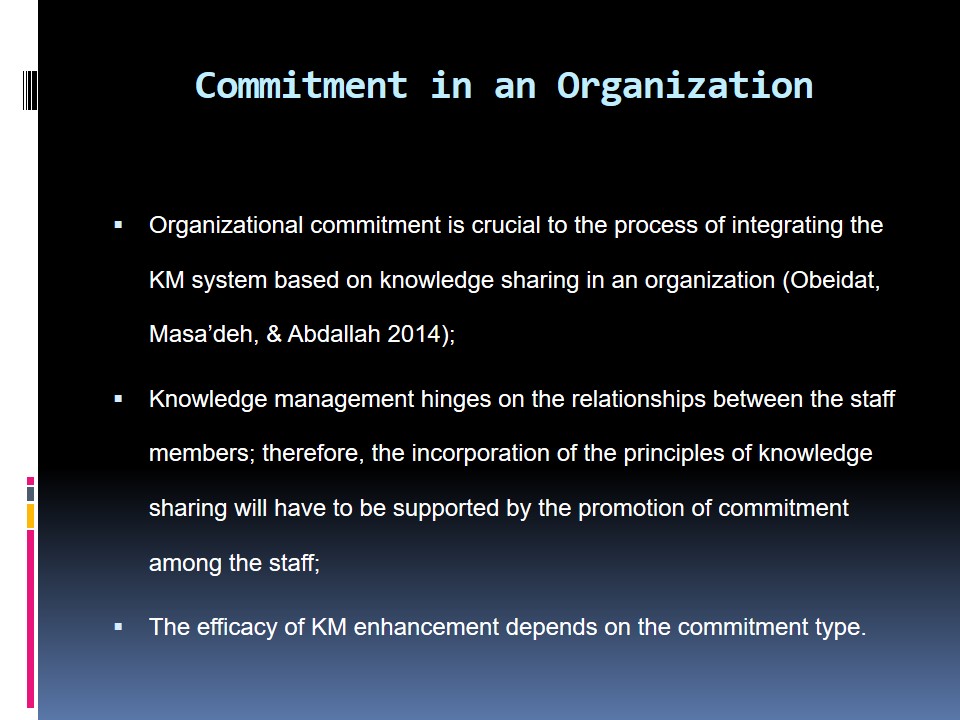
KM Processes in an Organization
- Organizational commitment Enhancing:
- KM with OC involves shaping people’s values and ethical standards;
- Knowledge management:
- KN is launched once the staff starts acquiring and processing information.
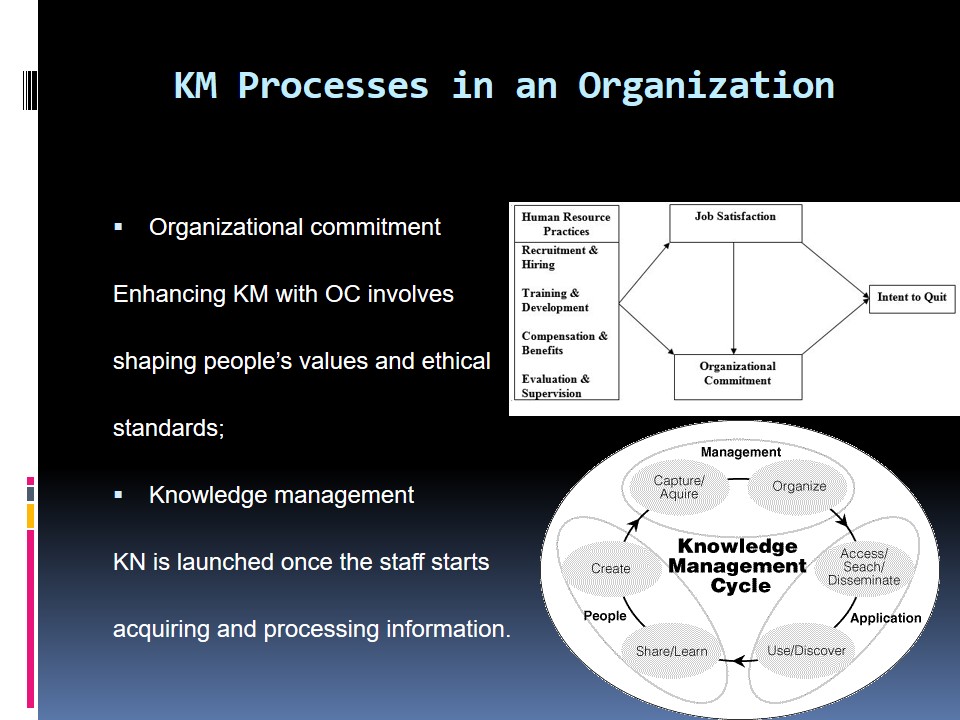
Organizational Memory
- Organizational memory (OM) is often viewed as an impressive competitive advantage;
- A memory problem known as corporate amnesia and meaning a memory loss occurs to companies often, thus, preventing the KM processes from occurring;
- OM allows the staff to identify and remember specific patterns of OB, therefore, being an important tool in the HRM system;
- Modern tools such as data centres can be used to enhance OM.
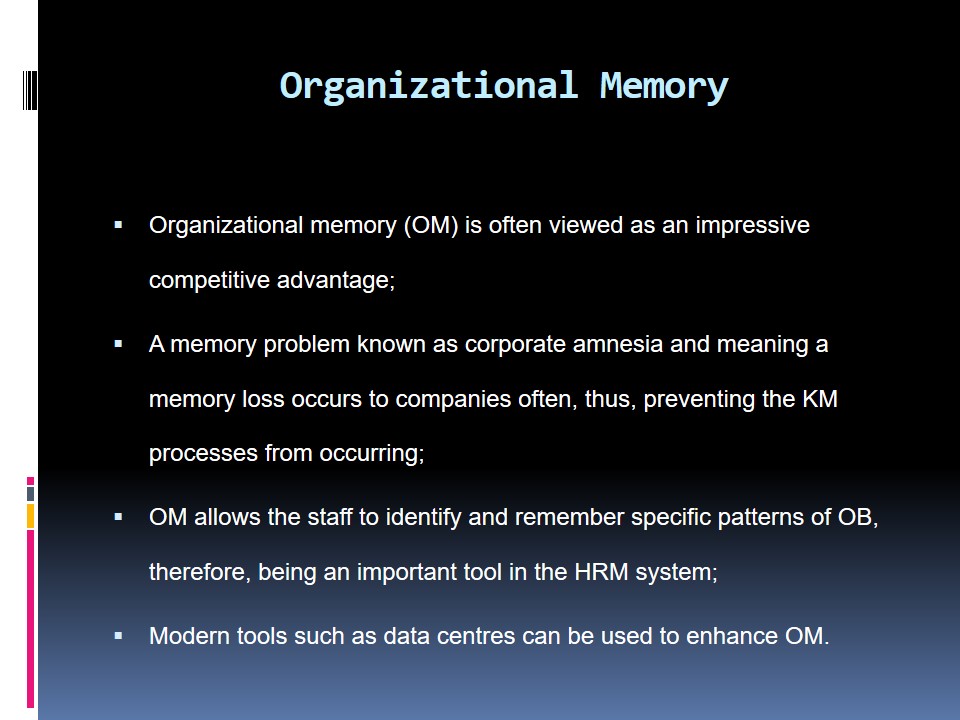
Knowledge-Oriented HR Systems
- Knowledge-oriented HR systems (KOHRS) help improve the overall performance of the staff;
- KOHRS enhance teamwork in any organizational setting;
- KOHRS focus on the issues such as staff training and career development, therefore, appealing to the employees and convincing them to adopt desirable organizational behaviour patterns;
- KOHRS emphasize the importance of a proper use of information when distributing responsibilities among the company’s employees.
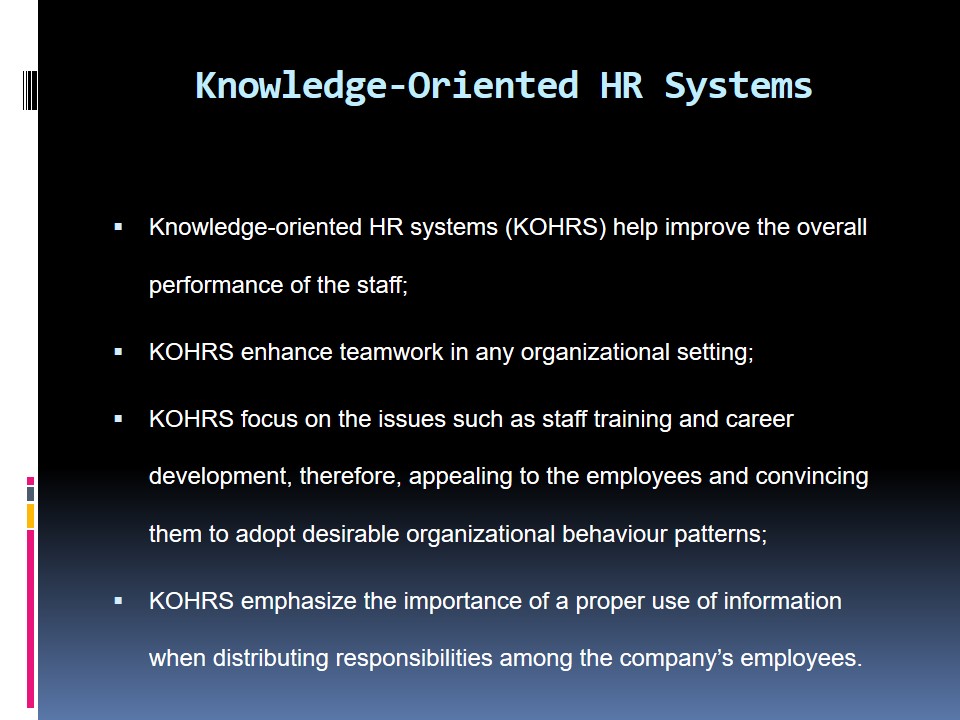
Knowledge Sharing in an Organization
- Knowledge sharing is crucial to the organizational, economic and financial well-being of a company;
- Adopting the knowledge sharing approach is crucial in the environment of the global market that any company is forced to operate in nowadays;
- Knowledge sharing allows improving the HR processes, as it helps distribute roles and responsibilities among the staff adequately.
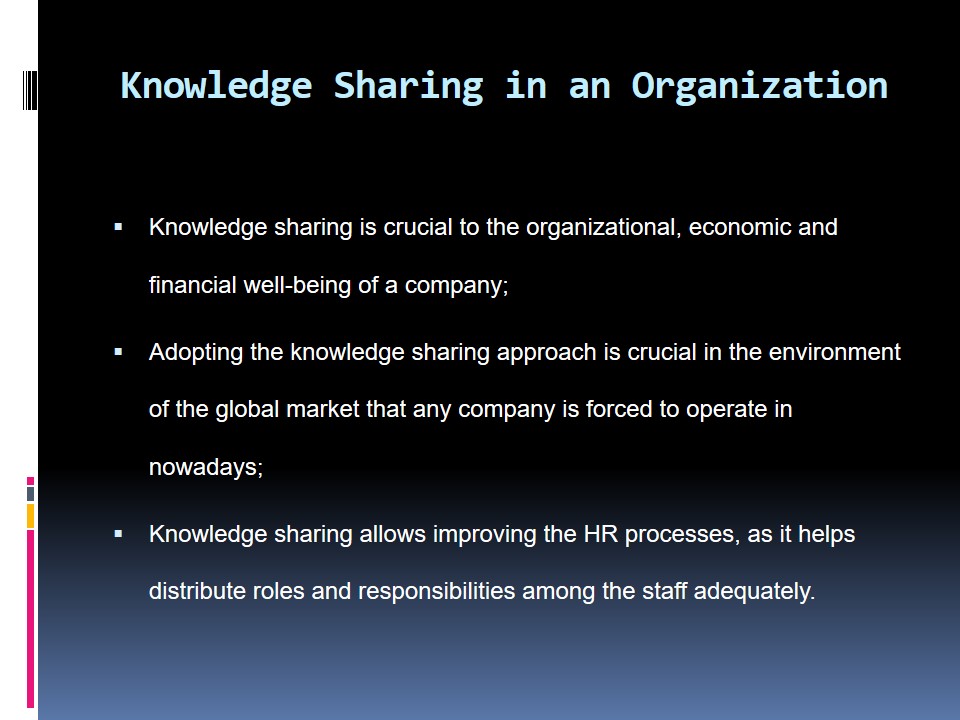
Organizational Commitment and KM
- Organizational commitment is defined as “the strength of an individual’s identification and involvement with a particular organization” (Obeidat, Masa’deh, & Abdallah 2014, p. 11);
- Organizational commitment can be used as the basis for developing the OB patterns that the staff will need to acquire to follow the KM system suggested by the company;
- Organizational commitment is categorized as affective, continuance, and normative commitment.
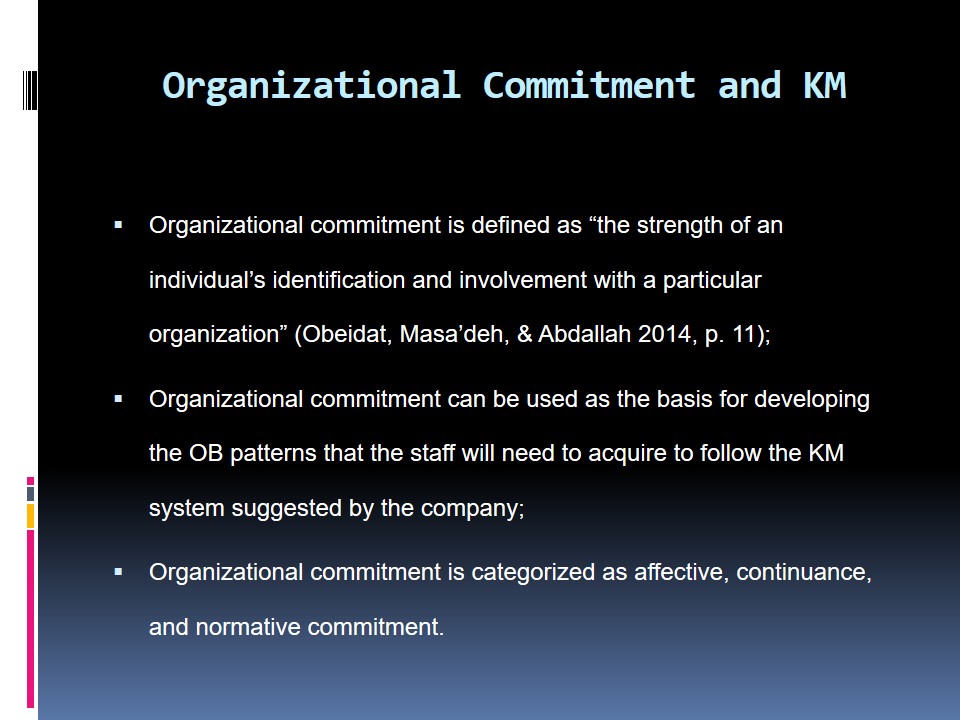
Promoting Knowledge Sharing
- Knowledge sharing (KS) is an essential part of the process of improving the HRM processes in an organization;
- KS promotes an efficient distribution and analysis of the information retrieved in the course of the company’s operations;
- KS is a significant part of the KM, which requires that the company’s operations should be based on the principles of transparency.
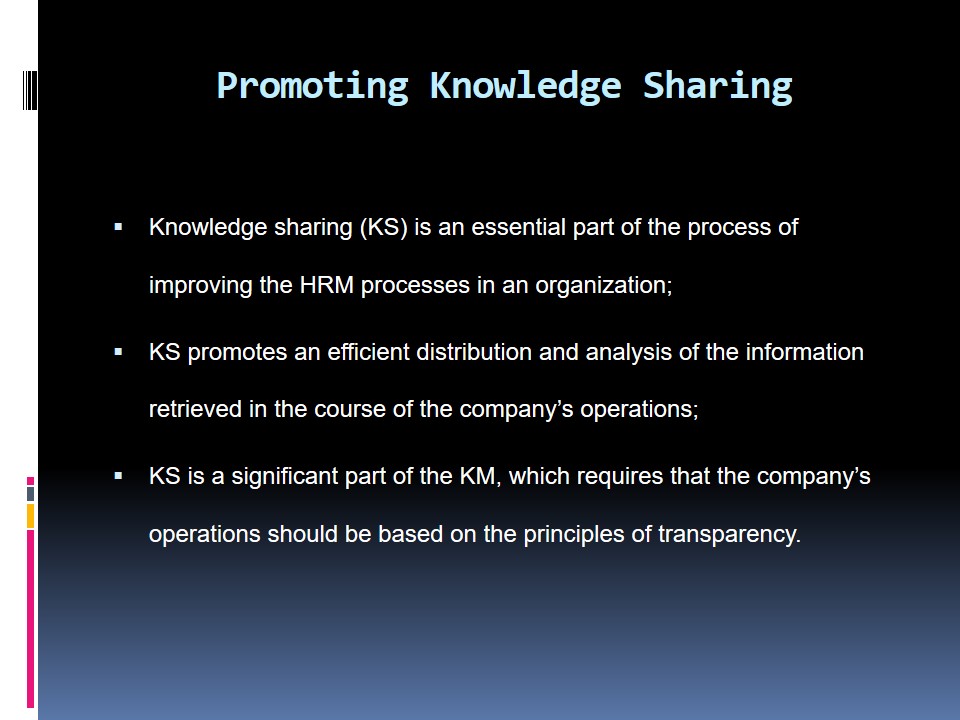
Conclusion
- On the surface, HR and KM may be viewed as unrelated;
- However, There is a strong link between KM, HRM approaches and OC (hypotheses A-C confirmed);
- KM helps increase commitment rates among the staff by promoting a specific model of OB for employees to follow;
- The incorporation of HR practices, organizational commitment and KM into the general HRM framework will help improve the staff’ performance significantly by introducing them to new ideas of OB.
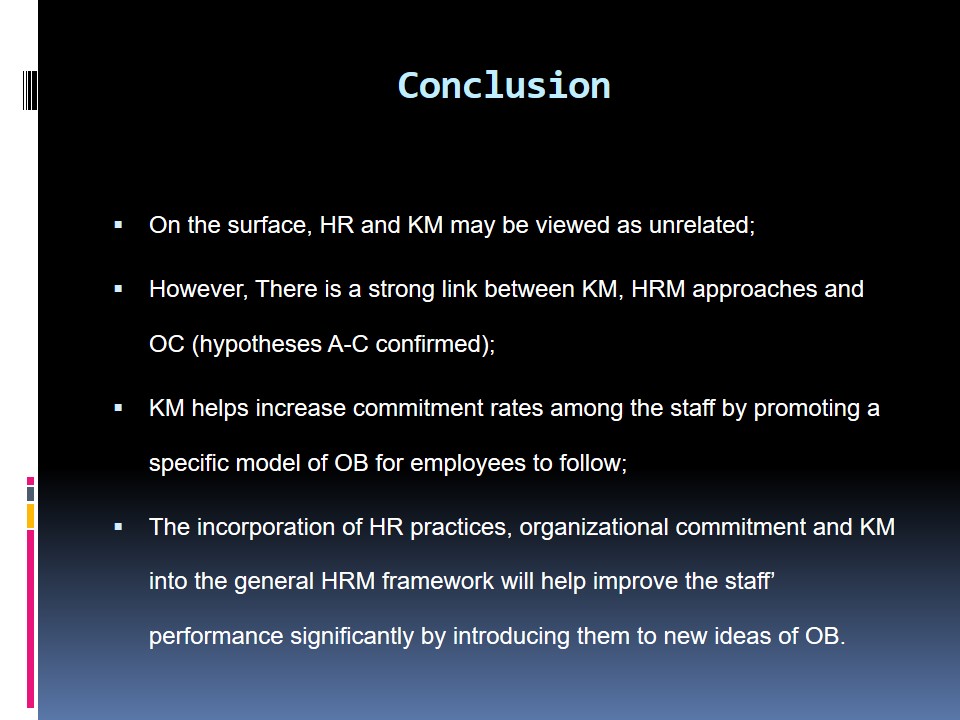
Reference List
Obeidat, B Y, Masa’deh, R M d‘T & Abdallah, A B 2014, ‘Human resource management practices, organizational commitment, and knowledge management processes’, InternationalJournal of Business and Management, vol. 9, no. 3, pp. 9–26.